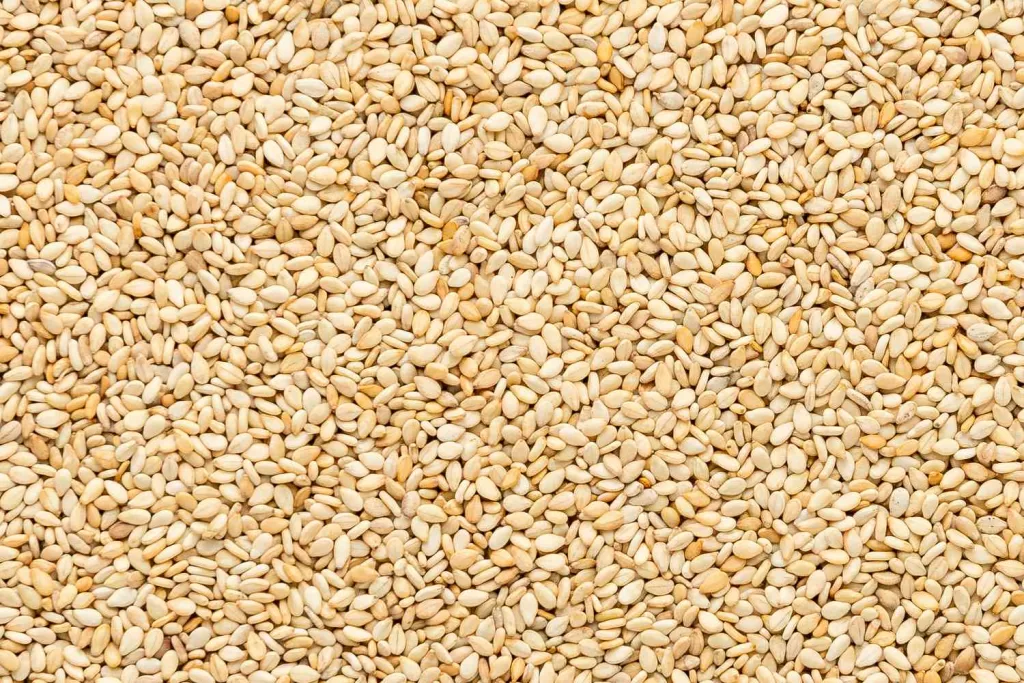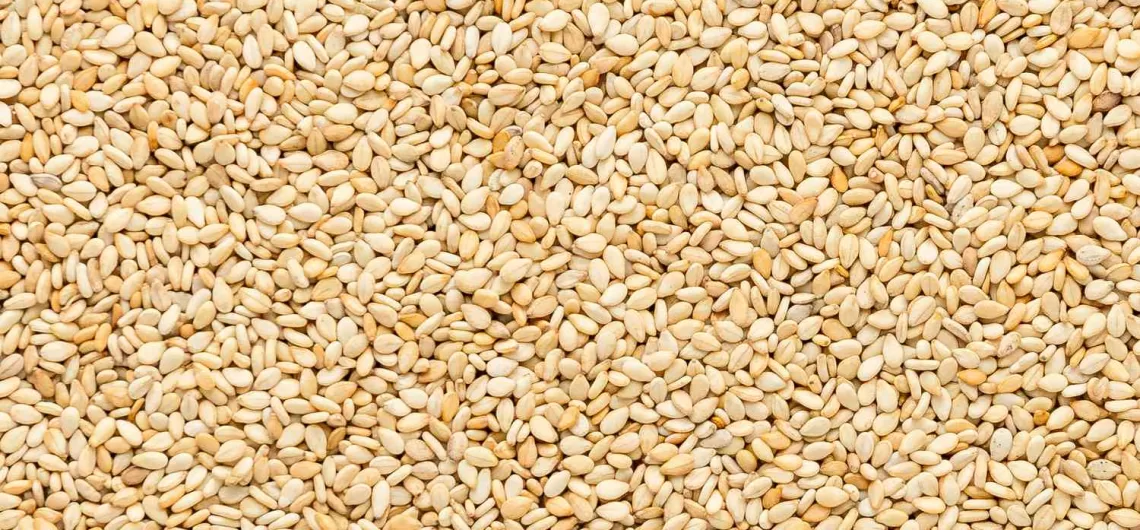How to toast sesame seeds
Toasting sesame seeds is a simple process that can be done on the stove or in the oven. Here’s how to toast sesame seeds:

On the stove:
- Place a dry skillet or frying pan over medium heat.
- Once the pan is hot, add the sesame seeds in a single layer.
- Toast the sesame seeds, stirring constantly with a spatula, until they turn golden brown and become fragrant. This should take 3-5 minutes.
- Remove the pan from the heat and transfer the toasted sesame seeds to a plate or bowl to cool.
In the oven:
- Preheat your oven to 350°F (175°C).
- Spread the sesame seeds in a single layer on a baking sheet.
- Place the baking sheet in the preheated oven and toast the sesame seeds for 5-10 minutes, stirring occasionally, until they turn golden brown and become fragrant.
- Remove the baking sheet from the oven and transfer the toasted sesame seeds to a plate or bowl to cool.
Note: Be careful not to burn the sesame seeds, as they can go from golden brown to burnt very quickly. Store toasted seeds in an airtight container in a cool, dry place for up to several months.
Nutrition Value
They are highly nutritious and are considered to be a good source of several essential nutrients. Here is the nutritional information for one ounce (28 grams) of the seeds:
- Calories: 161
- Fat: 14 grams
- Protein: 5 grams
- Carbohydrates: 6 grams
- Fiber: 4 grams
- Calcium: 27% of the Daily Value (DV)
- Iron: 23% of the DV
- Magnesium: 25% of the DV
- Phosphorus: 22% of the DV
- Zinc: 13% of the DV
- Copper: 44% of the DV
- Manganese: 97% of the DV
Sesame seeds are also rich in antioxidants, including lignans and phytosterols, which can help reduce inflammation and support heart health. Additionally, they are a good source of healthy fats, including monounsaturated and polyunsaturated fats, which can help lower cholesterol levels and reduce the risk of heart disease.
Benefits
They are tiny, oil-rich seeds that come from the Sesamum indicum plant. They are a good source of nutrients and have several potential health benefits, including:
- Rich in nutrients: These seeds are a good source of important nutrients such as calcium, magnesium, phosphorus, iron, and zinc. They are also rich in fiber, protein, and healthy fats.
- May help lower cholesterol: Some studies suggest that they may help lower LDL (bad) cholesterol and triglyceride levels, which are risk factors for heart disease.
- May support healthy bones: They are a good source of calcium, which is important for maintaining healthy bones. Consuming them regularly may help prevent bone loss and reduce the risk of osteoporosis.
- May have antioxidant properties: The seeds contain compounds such as lignans and phytosterols, which have antioxidant properties. Antioxidants help protect the body against oxidative stress and may reduce the risk of chronic diseases.
- May have anti-inflammatory properties: They contain compounds that have anti-inflammatory properties. Consuming these seeds may help reduce inflammation in the body and may be beneficial for conditions such as arthritis.
- May support healthy skin: These seeds are a good source of vitamin E, which is important for healthy skin. They may help protect the skin from damage caused by free radicals and may help reduce the signs of aging.
- May support healthy digestion: They are a good source of fiber, which is important for maintaining healthy digestion. Consuming these seeds regularly may help prevent constipation and may support overall digestive health.
It is important to note that sesame seeds are high in calories and should be consumed in moderation as part of a balanced diet.
